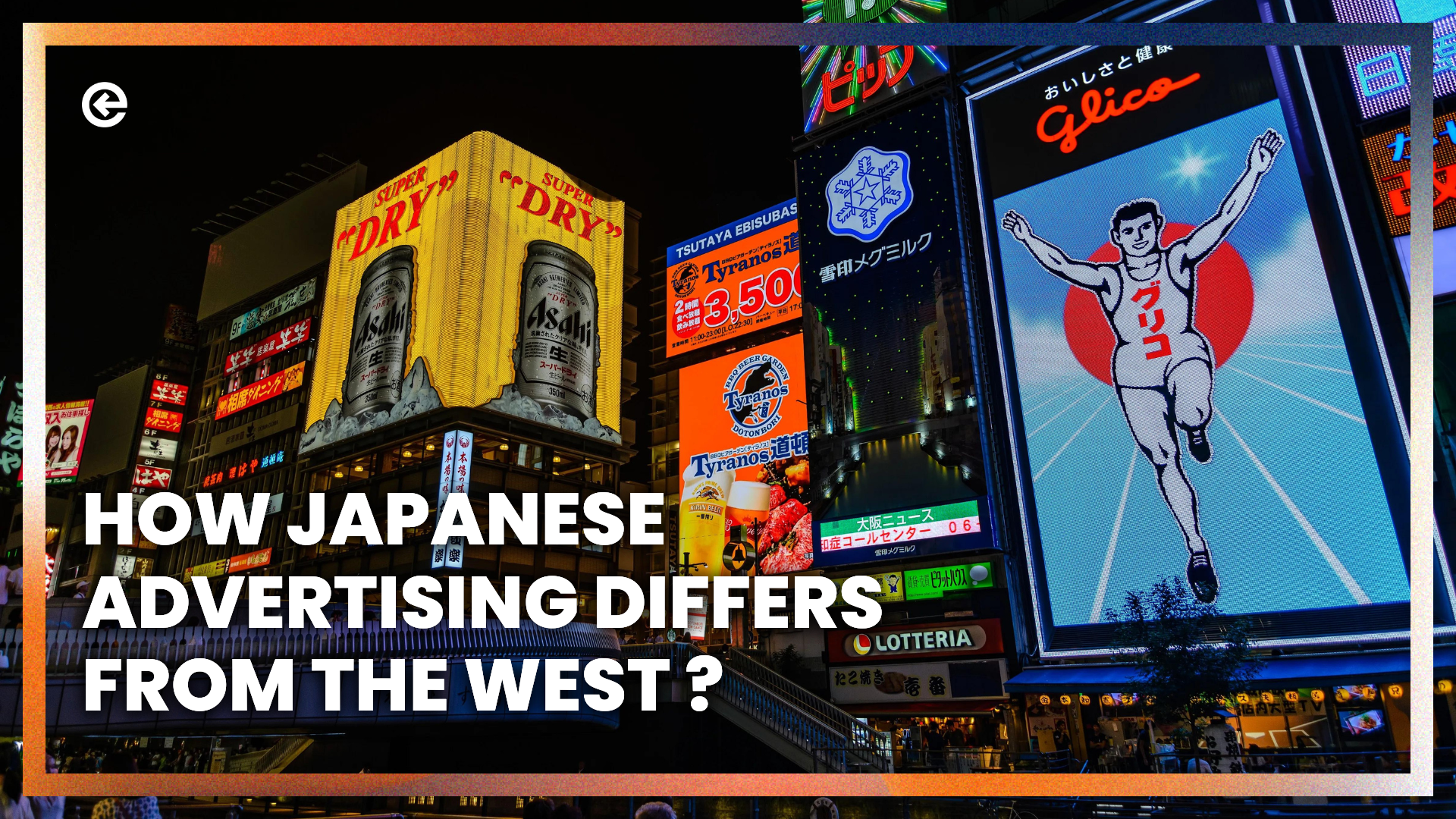How Japanese Advertising Differs from the West?
The international business landscape is incredibly diverse, featuring a rich array of cultural norms, preferences, and traditions. For businesses in the West, this can often mean stepping into uncharted territories, especially when those territories lie in the East.
If you’re considering starting /expanding your business in the Japanese market, this article could be your roadmap. Let’s delve into the particulars of Japanese advertising by creating a comparative analysis with the West.
Emotional Appeal VS. Informational Content
In the West, advertising often leans on emotional appeal. Think of Super Bowl commercials, brimming with heart, humor, or high-energy.
In Japan, ads tend to be more informational. It’s not unusual to find commercials dense with details about a product, highlighting its features, quality, and value proposition. However, don’t mistake this for a lack of emotion. Japanese ads weave intricate stories in their own unique way, often layered with cultural nuances.
Duration & Depth
Western commercials, especially in the U.S., are often brief and to-the-point, aiming to capture the viewer’s attention immediately. Japanese commercials, on the other hand, can run longer, delving deeper into the narrative. These ads take their time, building relationships between the brand and the audience. For example, this High School Girls? advertisement by Shisheido gained attention for its innovative approach to challenging conventional beauty norms.
Branding Techniques
While Western advertising often focuses on individualism, celebrating the ‘self’ and personal achievements, Japanese marketing values harmony, community, and interconnectedness.
Brands aim to present themselves as integral parts of society, emphasizing how their products or services can enhance collective wellbeing. For example, Japan’s CookDo brand’s advertisements commonly feature scenes of family life or friends gathering, emphasizing the joy and community that come with sharing a meal.
Mediums & Methods
Digital advertising is prominent globally. However, Japan still places great value on print media, with magazines and newspapers maintaining strong readerships. Platforms like LINE and Yahoo! Japan offers unique advertising opportunities not present in Western markets.
Learn more about top social media channels in Japan.
The Power of Respect in Japan
While Western advertising can sometimes be confrontational or challenging to established norms (think of Apple’s “Think Different” campaign), Japanese advertising is deeply rooted in respect, both towards customers and competitors. The tone is often gentle, polite, and considerate. For example, this Tokyo Gas ad is so poignant that perhaps it needs no translation.
Why Japan Matters and Why You Should Dive In?
1. Rich Consumer Market: Japan boasts a high purchasing power, with consumers who value quality and are brand loyal.
2. Unique Challenges = Unique Rewards: Navigating the Japanese advertising landscape can be challenging, but cracking this market can lead to substantial rewards, both in terms of revenue and brand prestige.
3. Cultural Expansion: Expanding into Japan can provide invaluable insights and broaden a brand’s cultural horizon, making it more globally versatile.
Conclusion
While the differences between East and West in advertising can seem daunting, they present a world of opportunities. By understanding and embracing these nuances, foreign businesses can not only tap into the lucrative Japanese market but also enrich their brand’s global narrative.
How COVUE can make a difference?
Entering a market as unique as Japan’s necessitates more than just understanding; it demands localization. That’s where COVUE steps in. With our expertise in marketing and localization, we ensure your brand resonates authentically with the Japanese audience.
Sources: News on Japan, Finextra, Japan Today


